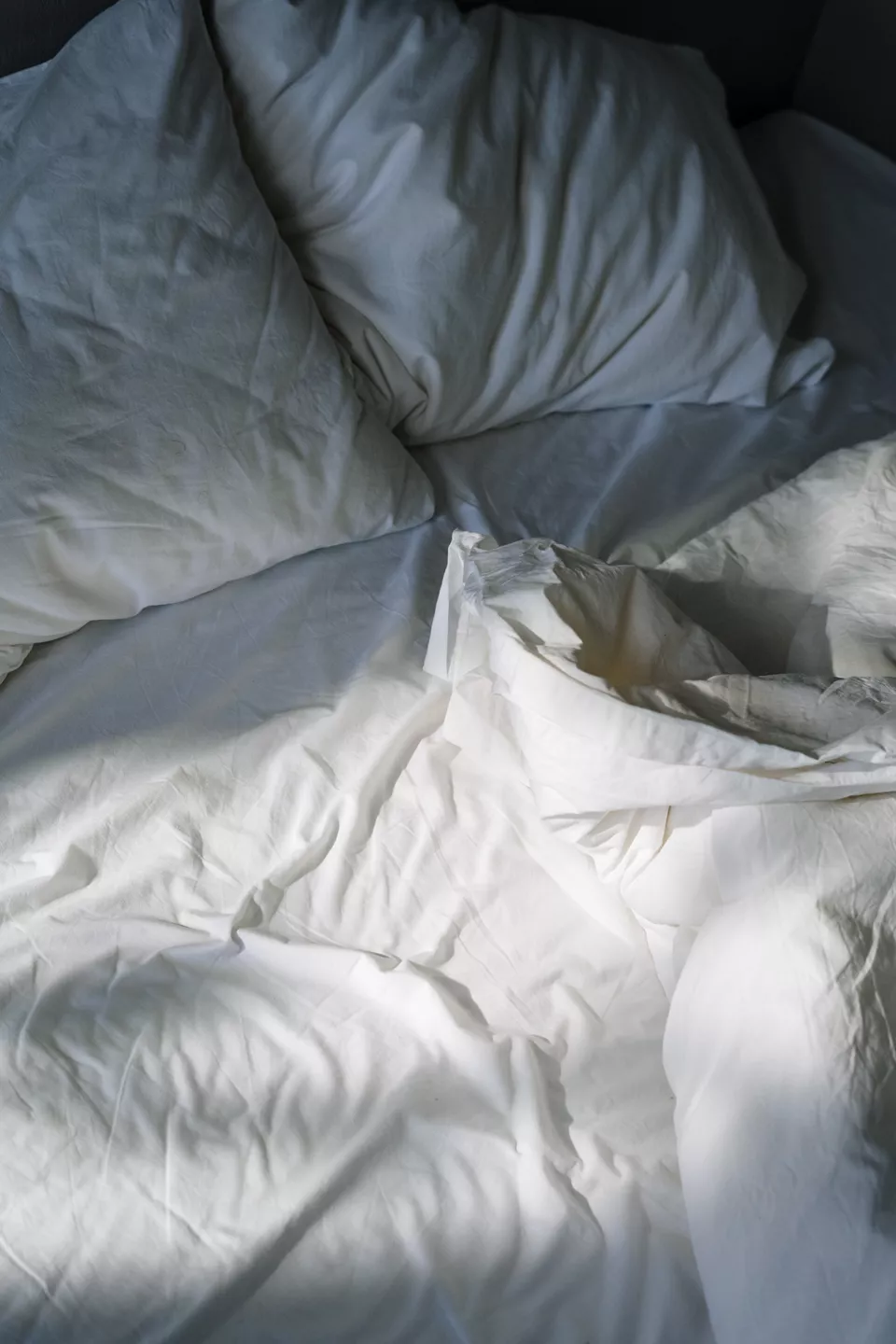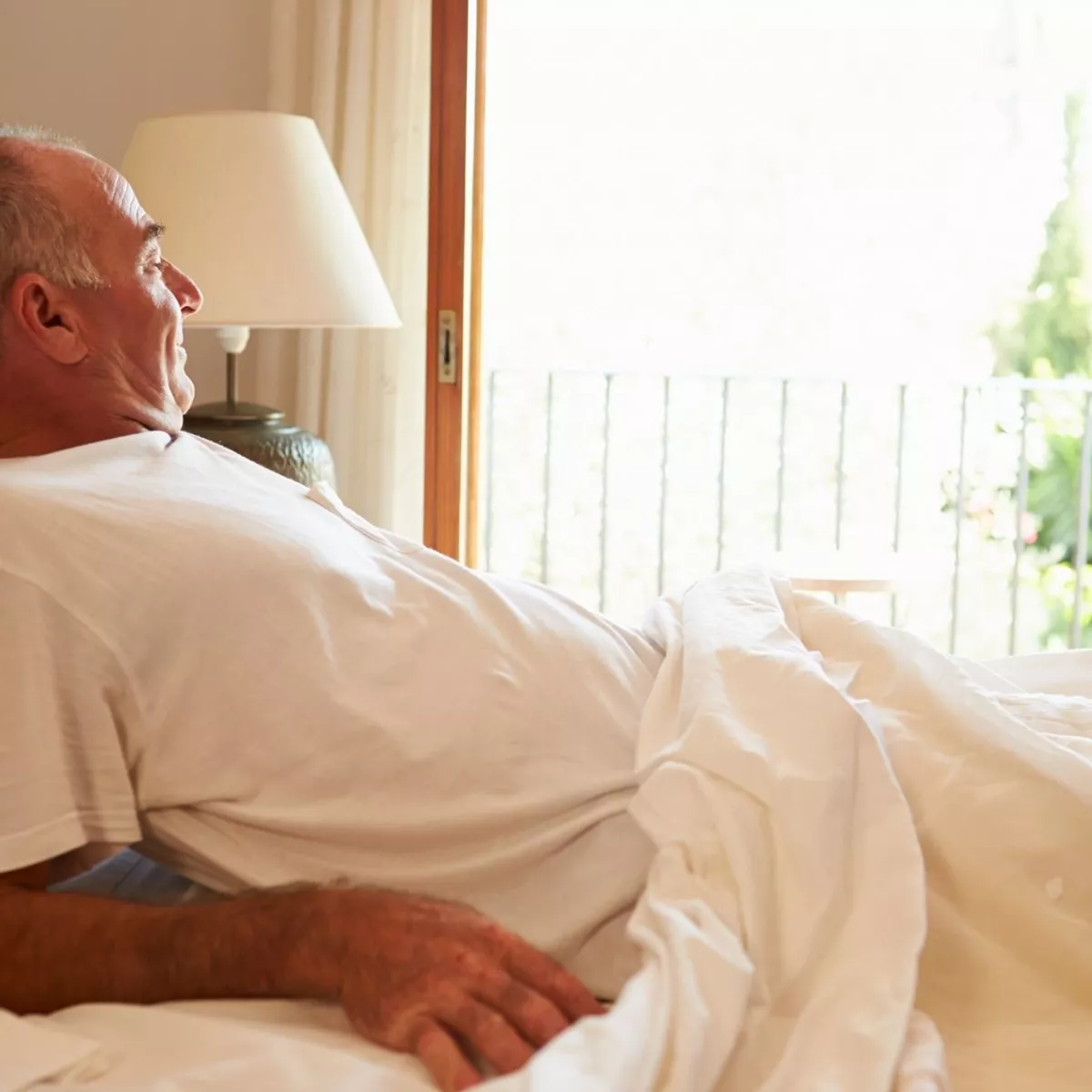How I sorted out my sleep
"I would wake up four or five times a night, brain racing with thoughts and often would manage only 2 or 3 hours sleep. I was exhausted."

How I sorted out my sleep
I am writing this blog to emphasise the importance of good sleep habits and how poor sleep can be the cause of, not the effect of other issues. It relates my own transformation in mood caused by solving an issue that I though was a side-effect. I understand it is common for people to be diagnosed with and treated for depression when the underlying physiological cause is sleep disorder.

I was raised to be tough and when I ended up living on a different continent from the rest of my family at 16 the resilience and ability to cope with privations and setbacks with a smile were really beneficial.
Life went well. I married my university sweetheart, became a full equity partner in my firm very quickly indeed after I qualified and life was good. We had two very adorable children (who, fortunately, have grown up to be adorable adults).
We had our usual share of privations – family problems, serious illness and so on. We powered through. In my 40s, however, things changed a bit. I decided my partners were taking the firm nowhere and retired knowing that staying in business with them would be a disaster. I quit and that was a liberation. We set up our own business. It thrived. Life was good, though it was very hard work.
However, parental health issues cropped up which meant a lot more work and travelling to look after them and sort out problems. Always a light sleeper, I started to experience broken nights and over the years, my bright and breezy demeanour was gradually changed; as my energy ebbed away, I became withdrawn and short-tempered
" I would wake up four or five times a night, brain racing with thoughts and often would manage only 2 or 3 hours sleep. I was exhausted. My previously boundless optimism was replaced with negativity. That got worse and worse and as much as I tried to hide it from those I loved, they saw it. I needed to grab catnaps in the day and was constantly tired and making some fairly poor decisions."
The accepted wisdom was that I was depressed and anxious which was causing me to lose sleep. I was never going to accept medication, so for years lived with a big shadow over life as a whole, and drank more than was good for me (though not to excess).
Then one day, I saw that there was a talk on how to sleep better being put on at a local church hall. I went, thinking that if I could at least get more sleep I'd be able to take on the stress, anxiety and negativity I felt with more strength and resolve.
There were three speakers, one of whom was leading sleep physiologist Stephanie Romiszewski of the Sleepyhead clinic in Exeter. She said she often sees clients who have been diagnosed with mental health issues, which ultimately can be the result of, not the cause of, poor sleep. Her approach was evidence-based. She advised, and I wrote down, some simple bits of behaviour to incorporate into my routines. They 'gelled' with my way of thinking, so I went home and incorporated them. What did I have to lose? Life was crap anyway.
Here are the main ones. She calls them the Golden Rules of Sleep. © Sleepyhead
-
Stop dictating your sleep time
Don’t go to bed unless you’re really sleepy, even if it means a few late nights to start with. Remember that short, unbroken sleep is more beneficial than more time in bed not sleeping.
-
Start dictating your wake time
Wake up at the same time every day even when you have had a poor night’s sleep (and this applies to weekends too).
-
Stop stealing your sleep fuel
Do not nap during the day- it will steal your sleep drive away from you and your body will have to build it up all over again before you can sleep
-
Start relaxing
Once you feel sufficiently sleepy, start using some relaxation exercises before bed.
She also added another which was invaluable in the first few days – when you wake up in the middle of the night and can't get back to sleep, GET UP and do something (not drink coffee/tea or involving screen time)...reading is good… and go back to bed only when you feel sleepy again…also don't drink alcohol in the last couple of hours before you go to bed.
Applying these principles, the effect was truly transformative. Within two weeks I was back to feeling as well as I had at any time in the previous 20 years, and all the side effects of the sleep poverty – anxiety, grumpiness, depression – just disappeared.
If your life is one of anxiety and feeling stressed and you don't sleep well, I'd strongly suggest making sure you sort out your sleep issues as a matter of priority…you may find that the other issues which affect you are much reduced or even eliminated…you'll do better work, be happier, better with your family and more effective generally.
We're here to listen...without judgement






